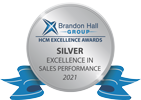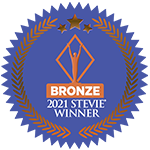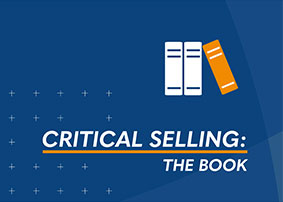Want to do Targeted Prospecting? Do More Research

One of the most important skills for a sales rep to develop is researching. It’s a subject that doesn’t get talked much about in terms of sales reps, other than discovery (which, incidentally, is one of the most popular Google sales-related search terms). But it should be discussed more, and sales reps should make research a greater priority – one that goes beyond just individual client discovery.
- Determine the primary industries and/or geographical area you work with.
Whether your sales territory is a geographic region or your product is one whose buyers can be delineated into a few major industries, it’s critical that you figure out the biggest verticals and locations you’ll be working with. This is the starting point for your research – figuring out what you need to learn more about. Much of this information should be readily accessible if you know where to look.
- Study how your biggest sectors (whether industry or geography) conduct business.
It’s important to develop business acumen, staying on top of the industry news and being dialed in to what’s going on within your target segment. Pay close attention to how your prospects and clients conduct business. What’s the language? What are the trends? You should be determining this both on an industry level and from a geographic standpoint.
There’s a lot out there about the importance of these business process differences on an international and global scale, and for the individual buyer (communication styles, etc.) – yet for some reason, the distinctions in domestic regions and cultures is too frequently glossed over.
- Learn as much as you can about your primary target industries.
By now, it’s commonly accepted that transactional selling is dying off and consultative selling is the gold standard. It’s also widely known that you need to become a Trusted Advisor. Discovery is important and relationships take time to build – especially in the complex jungle of B2B sales, where multiple actors are involved.
But you can build the relationship and trust faster by doing deep research and familiarizing yourself with the intricacies of your target markets before you pick up that phone or send an email to a lead. If you know the terminology, the common pain points, the economic factors, the outlook, the questions – in short know the industry as well as the professionals who work in the industry as their job, you’ll be much further ahead of the game.
To make this a little clearer, let’s say you and a competitor sell high-end storage safety cabinets. One of your primary target industries is forensics labs.
You: Doesn’t know much about forensics labs
Competitor’s Rep: Binges Forensics Files, The First 48, Cold Case, and related shows. Has researched the industry extensively and can talk intelligently about forensics and how the storage safety cabinets apply to forensics labs
Guess who has the edge in this simplified example?
Note: This isn’t saying that your competitor will automatically win any given deal where you’re competing for the same account. But that other sales rep *will* be able to foster connections, build trust, and engage in a collaborative partnership much more easily and quickly than you will, and long-term, will likely be more successful in selling to that industry than you will.
- The research applies to your own industry and sales in general, too.
While we’ve emphasized the importance of research as relates to the client side of things, it’s also critical for you to keep aware and up to date of your own industry. If, for example, your level of knowledge about the industry of products you sell is limited to what you knew five years ago when you first started, plus whatever new offerings your employer has produced, you run the risk of looking far less-informed and expert than someone else who is constantly keeping abreast of current trends and changes.
And given you’re a sales professional, sales is another industry you should stay up-to-date on. (You’re already doing this by reading this blog). The best practices and ideal strategies, tools, and techniques in sales evolve just as much as anything else, so stay aware with what’s going on.
The days of Glengarry Ross’s maxim, “ABC – Always Be Closing” are gone – made antiquated and replaced by collaborative, mutually beneficial sales discussions. That leaves open a space for new phrases to emerge that encapsulate the paradigm shift. Our submission for the importance of research? “Be able by being ABL – Always Be Learning.”

- Account Planning (16)
- Awards (42)
- Client Testimonial (37)
- Personal Branding (21)
- Podcast (12)
- Research (77)
- Sales Career Development (90)
- Sales Coaching (164)
- Sales Consulting (141)
- Sales Culture (181)
- Sales Enablement (380)
- Sales Leadership (110)
- Sales Management (267)
- Sales Negotiation (11)
- Sales Prospecting (136)
- Sales Role-Playing (19)
- Sales Training (242)
- Selling Strategies (279)
- Soft Skills (78)
- Talent Management (101)
- Trusted Advisor (29)
- Virtual Selling (57)
- Webinar (13)




























